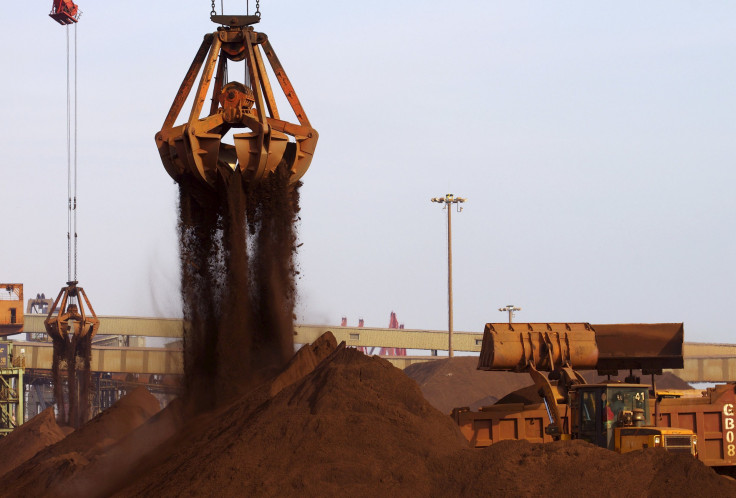Asian Stocks Fall As China Trade Declines, Oil Stays Below $40 Per Barrel

Asian stocks fell early Wednesday, following the U.S., as weak Chinese trade data Tuesday revived concern about the global economy and oil stayed near six-year lows. Energy-, commodity- and trade-linked stocks and currencies were hit.
Japan's Nikkei 225 and the ASX 200 in commodity-dependent Australia both fell 0.4 percent, the STI in trade-dependent Singapore dropped 0.9 percent and the JSX Composite in oil-producing Indonesia slumped 1.3 percent.
In the U.S., the Dow Jones Industrial Average fell 0.9 percent and the Standard & Poor's 500 0.7 percent. The technology-heavy Nasdaq composite was little changed with a 0.07 decline.
China on Tuesday said exports fell for a fifth month in November, pointing to global weakness, and imports fell for a 13th month -- by 8.7 percent. That indicates countries around the world can't count as much on China to buy up their metals, fuels and other commodities. This is occuring at a time when most financial market players expect the U.S. Federal Reserve to raise rates for the first time in nine years next week, which could pull more funds to the U.S. or possibly slow the U.S. recovery.
“You’ve got this massive confluence of events conspiring for a negative outcome,” said Tim Schroeders, a portfolio manager who helps oversee about $1 billion in equities at Pengana Capital Ltd. in Melbourne, as Bloomberg reported. “Things are feeding on themselves at the moment as China goes through a period of very weak economic data, overhanging concerns about the Fed raising rates in the next week or so, and some company-specific things which overall are eroding any positive sentiment.”
Oil stayed below $40 a barrel, at its lowest levels since 2009, after Saudi Arabia refused to cut production at last week's meeting of OPEC members. Oil, which was trading at around $100 a barrel in the first half of last year, has been falling since then as production increases, thanks in part to fracking in the U.S., has met weak demand, due in part to China's economic slowdown.
"The sustained U.S. crude price below $40 is a bit of a shock to investors," said Tim Ghriskey, chief investment officer of Solaris Group in Bedford Hills, New York, as Reuters reported. "China has been for some time the buyer at the margin. Traditionally they would come in when prices were down and buy inventory very shrewdly."
Reuters didn't say whether Ghriskey expected China to do so now.
© Copyright IBTimes 2024. All rights reserved.











